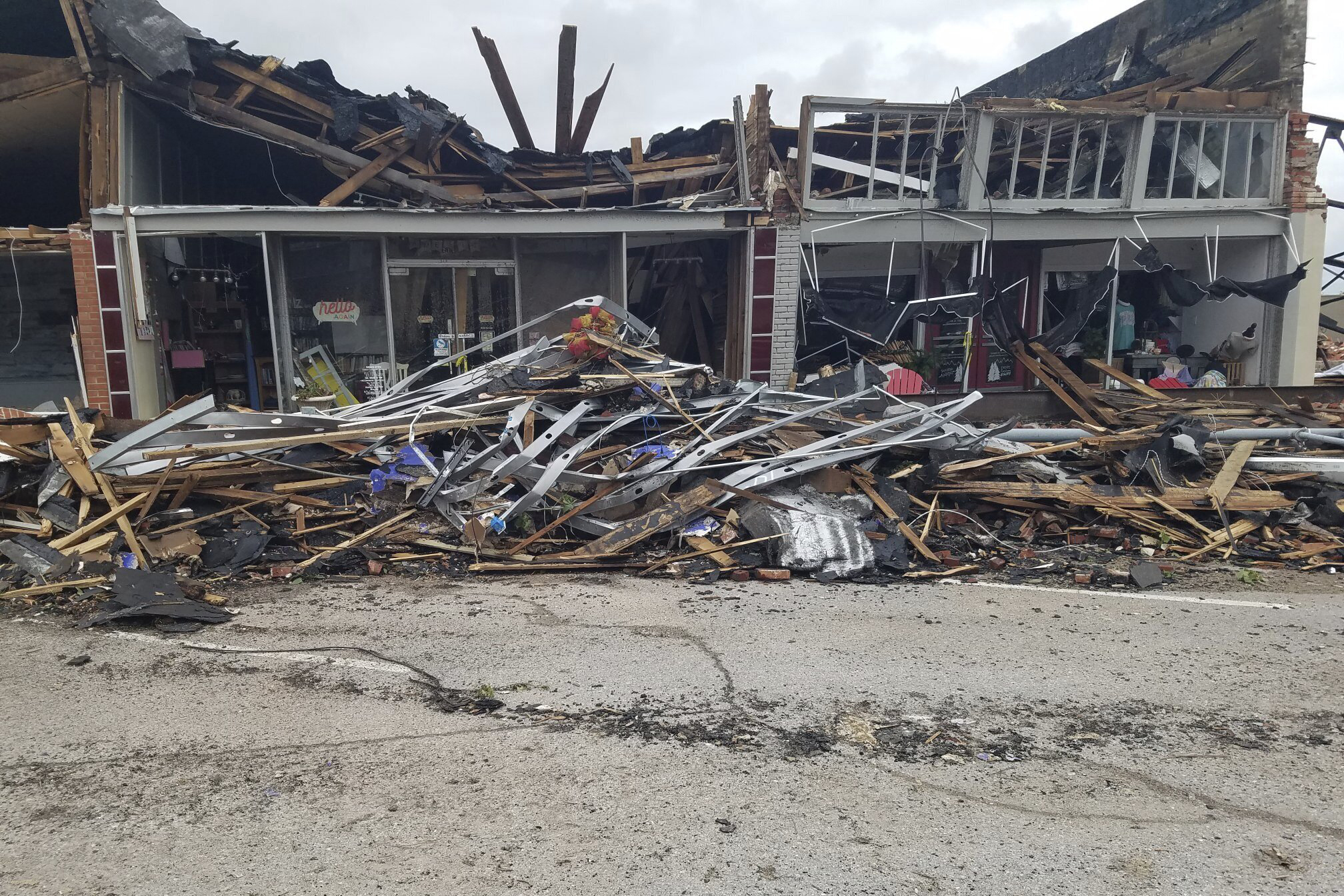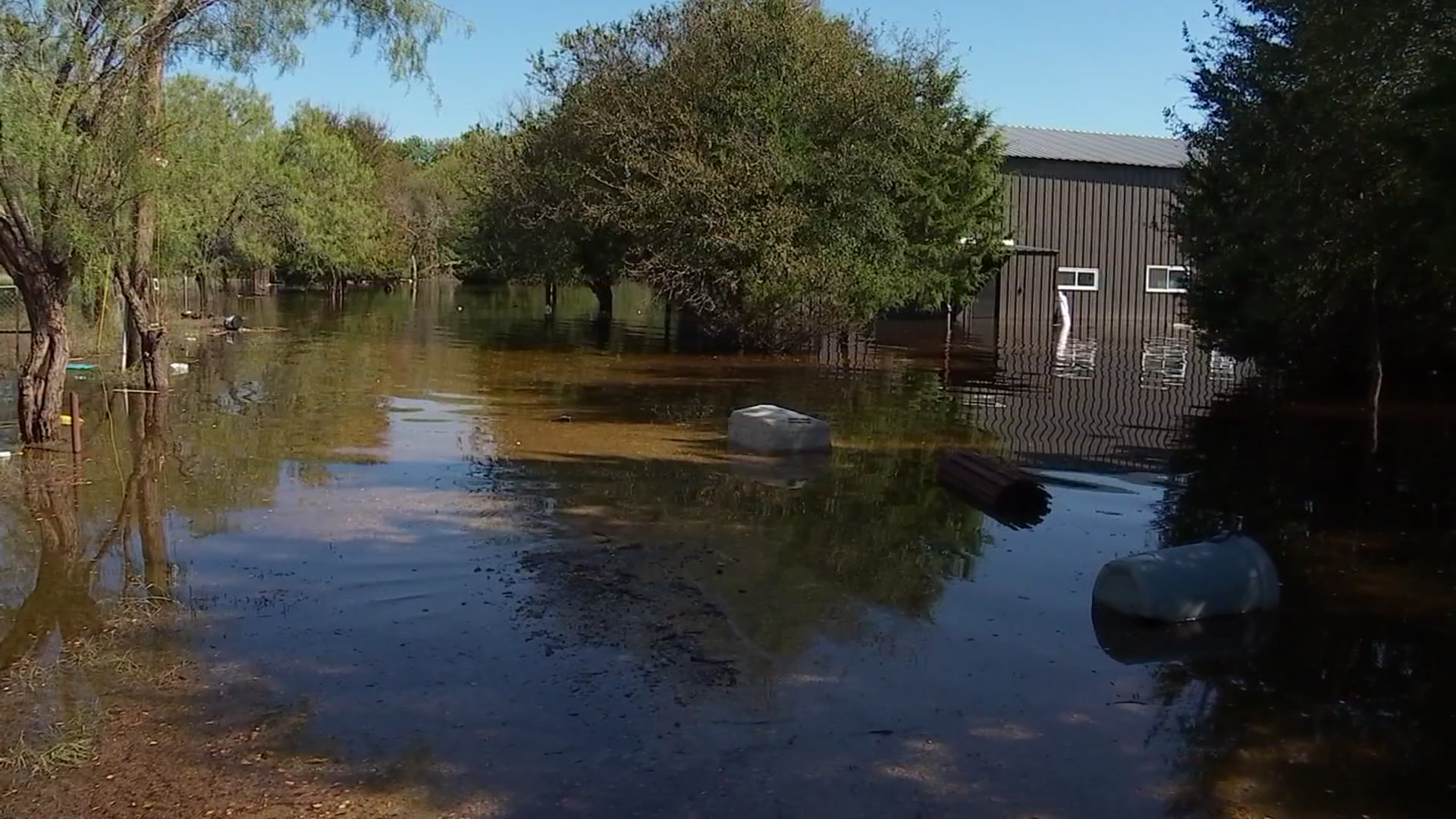There is a quiet and somber feel to this small piece of America on an English hillside in Runnymede, near where the Magna Carta was signed eight centuries ago.
Only a trickle of visitors come to the John F. Kennedy Memorial, located on about a half-hectare (an acre) of land given to the people of the United States by Queen Elizabeth II in an unprecedented act of British affection for the fallen president.
Here, near the Thames River meadow where the founding charter of civil liberties was signed in 1215, the queen came to dedicate the austere monument to a president killed 1 1/2 years previously.
Accompanied by Kennedy's widow, his two children and two surviving brothers, the queen spoke of "the unprecedented intensity of that wave of grief, mixed with something akin to despair, which swept over our people at the news of President Kennedy's assassination."
She spoke for the multitudes. Much of the world learned of Kennedy's death within minutes, and 50 years later it still feels the loss.
Across six continents, in sports grounds, statues, scholarships, streets, hospitals, bridges, parks and schools, the name of John F. Kennedy is preserved in perpetuity, nowhere more keenly than in the hearts and minds of the Irish.
Local
The latest news from around North Texas.
There he is widely recognized as the nation's most famous son, whose great-grandfather Patrick emigrated to Boston in 1848 from a 14-hectare (35-acre) farm near the River Barrow in Dunganstown, County Wexford.
That farm in Ireland's southeast corner has become a focal point for tens of thousands of JFK pilgrims annually since June 1963, when Kennedy visited his ancestral homeland. His four-day tour inspired unparalleled excitement in a then-impoverished land that had never before seen an American president.
In the nearby town of New Ross, a bronze podium bearing microphones and the presidential seal marks the riverside spot where Kennedy spoke. A flame taken from his burial plot in Arlington Cemetery burns at the center of a globe-shaped sculpture dedicated to Ireland's emigrants.
Carmel Delaney, a New Ross native, was 11, singing "The Star-Spangled Banner" with a crowd of Catholic schoolgirls when JFK's helicopter landed.
"We wouldn't have seen a helicopter before. That was something fabulous altogether," she said. "We knew he was somebody extremely important. We knew he was a god."
The day after Kennedy's funeral, Ireland observed a national day of mourning. Tens of thousands queued to sign the U.S. Embassy's condolence book, and businesses closed so employees could attend Masses in JFK's memory.
Jacqueline Kennedy gave the president's Irish relatives the rosary he had in his jacket when he died. It is on display at the Kennedy Homestead.
At the homestead, JFK's closest living relative in Ireland, fourth cousin Patrick Grennan, says the family is planning no special occasion for the 50th anniversary.
"We Kennedys choose to commemorate life, not death," Grennan, 38, said while showing a visitor around the homestead. "We celebrate the triumph of his visit to Ireland, his inspirational words. We try not to dwell on the horror of what happened later."
"I put on the radio, and just at that moment there was a chilling report informing us that the president had been assassinated in Dallas," Fidel Castro wrote in a recent newspaper column. The usually voluble former president of Cuba recalled being struck dumb. "For all intents and purposes there was nothing that we could talk about."
In Cuba, Kennedy was reviled for authorizing the Bay of Pigs invasion and perceived as bellicose during the missile crisis that brought the world to the brink of nuclear war.
"Every Cuban felt like that president was attacking us. You couldn't have the slightest good will for him," said Manuel Rodriguez, a 74-year-old former bank employee and militia member who was mobilized during the Bay of Pigs attack and the missile crisis.
He remembers that Kennedy's assassination shocked Cuba and provoked fears that new tensions would roil the island. Once again he was called up for military duty.
His view of Kennedy has softened somewhat over the years; today Rodriguez believes the hostile U.S. policy toward Cuba was set by Kennedy's predecessor, Dwight Eisenhower, and that Kennedy had to "keep up the pace."
In Bogota, Colombia, Maria Cristina Reyes remembers exactly what she was doing when Kennedy was shot.
He had touched her life.
Reyes was 16 and newly married when JFK pulled up in a black limousine with his wife and Colombia's president on Dec. 17, 1961. She and her husband were among people building simple one-story red brick houses financed by Kennedy's "Alliance for Progress" initiative.
One of the homes would be the Reyes family's, in a district which would be named Barrio Kennedy.
"We felt great joy to see someone who was not from our country come and give something to people who were really in need," said Reyes.
Neighbor Martha Garay, now 77, remembers Kennedy's impact: "He was dashing, attractive, impeccable, and so was his wife."
JFK lingered, visiting a lot of the houses, "and spoke some Spanish though it wasn't anything that was very understandable," Garay said, chuckling.
Reyes said she was housecleaning when word of the assassination reached her. "We turned on the radio when they announced the terrible news."
Today, having lived through Bogota's violent decades, she sounds fatalistic when she thinks back to Kennedy's murder.
"When a person like President Kennedy comes around and tries to help, they always cut him down," she said.
The day after the assassination, the performance of Chekhov's "Uncle Vanya" ran as scheduled in London's Old Vic theater. When the play ended, Sir Laurence Olivier stepped forward, raised his hands, and said that instead of applause the actors would rather stand with the audience for two minutes of remembrance. The great actor and director arranged for the silence to be broken by the playing of "The Star-Spangled Banner."
Since his death, the legacy of JFK has touched lives the world over. David Miliband, a Briton, is typical. He studied in the U.S. on a scholarship from the Kennedy Memorial Trust, and went on to serve as his country's foreign secretary.
"Today Kennedy remains a repository of hope not because he was assassinated but because the things he said and did created hope," Miliband says. "There is a huge sense of promise unfulfilled. His vision was utterly inspiring."
At Runnymede, carved on a rock, is a sentence from JFK's 1961 inauguration address that still resonates around the globe: "Let every nation know, whether it wishes us well or ill, that we shall pay any price, bear any burden, meet any hardship, support any friend, oppose any foe, in order to assure the survival and the success of liberty."
John Fitzgerald Kennedy Munene is a 32-year-old Kenyan. His mother chose that name when she gave birth to him in the U.S. while on a student exchange program. He has studied the American president more than the average Kenyan, including reading Kennedy's "Profiles in Courage."
He has also studied a program made possible by JFK through the family trust when he was a senator that took dozens of African students to the U.S. to further their education. One person in the program was Barack Obama Sr., the current president's father.
Munene, who works in information technology, likes to play soccer, wearing a jersey with "JFK" emblazoned on it. When they see it "people say, `Are you going to be Kenya's president?' ... It's quite a fun name."
It was early afternoon on June 26, 1963, when Christian Sack first saw John F. Kennedy. His West Berlin high school had given its students the day off for the U.S. president's visit to the city, which had become a front line of the Cold War. Twenty-two months earlier the East German communist regime had rammed a wall through Berlin.
Sack was one of an estimated 1 million Berliners who lined the streets that day.
As a teenager, he recalled, he was "more interested in music and girls than politics," but Kennedy captured his attention when he proclaimed his solidarity with the isolated city, in a speech that ended with the famous line "as a free man, I take pride in the words, `Ich bin ein Berliner"' -- "I am a Berliner."
"The atmosphere was explosive -- explosive with excitement," Sack said. "You have to imagine the wall had only stood for two years and the politicians in West Germany just wanted quiet and never said much about it, so it was naturally almost a feeling of liberation that a politician would take it up and put it on the agenda."
Five months later, Sack was on the Kurfuerstendamm, the city's liveliest boulevard. "People just stopped and started talking -- Kennedy had been killed," he said. "There was a huge disbelief, and sadness."
Some 60,000 people, many in tears and carrying torches, gathered at the place where Kennedy gave his famous speech.
After the Sept. 11, 2001, attacks, Berliners remembered "I am a Berliner." Many of those who gathered outside the U.S. Embassy in sympathy carried signs that said: "We are all New Yorkers."
Contributing to this report were Associated Press writers Shawn Pogatchnik in Wexford, Ireland; David Rising in Berlin; Andrea Rodriguez in Havana; Jason Straziuso in Nairobi, Kenya; and Cesar Garcia and Vivian Sequera in Bogota, Colombia; and researcher Rhonda Shafner in New York.



